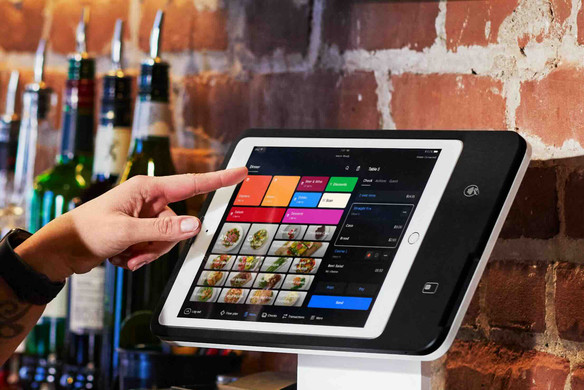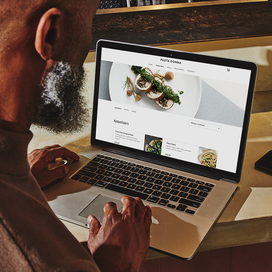Table of contents
This article is for educational purposes and does not constitute legal or tax advice. For specific advice applicable to your business, please contact a professional.
If you’re starting a business that sells alcohol in California, then you’ll need a liquor license. The California Department of Alcoholic Beverage Control (ABC) oversees all alcoholic beverage licensing activities. They provide detailed information about the license application requirements and process. But with over 99 specific license types to choose from, finding the right information might require a little navigation. This guide highlights the most important parts of the process so you can get to it faster.
1. Determine the type of license you need
The license you choose depends on the type of alcohol you intend to sell and where it will be consumed. The most popular licenses for retailers, bars, and restaurants are the on-sale and off-sale licenses.
- On-sale beer license covers the sale of beer only.
- On-sale beer and wine license covers the sale of beer and wine only.
- On-sale general license covers the sale of beer, wine, and distilled spirits.
- Off-sale beer and wine license covers the sale of beer and wine for consumption off-premises.
- Off-sale general license covers the sale of beer, wine, and spirits for off-premises consumption.
There are also more specific licenses, such as the On-sale General – Eating Place license, which covers the sale of beer, wine, and distilled spirits for consumption in a restaurant.
More: A full checklist of everything you need to start a restaurant
2. Determine the applicable license requirements
Documentation and regulatory requirements differ by license type, so before you can start serving alcohol at your business, it’s important to identify which requirements apply to your unique situation. In general, to get approval for most applications, you’ll need to meet these requirements:
- Location and zoning approval: The ABC requires that you contact the appropriate county officials to inspect the location. If you’re opening a business in a new location, you may need a Conditional Use Permit.
- Sales tax permit: You must apply for and obtain a seller’s permit for sales tax from the State Board of Equalization before you can request a liquor license.
- Federal requirements: Depending on your business type and location, you may need to obtain a Federal basic permit or a special Occupational Tax Stamp.
- Escrow requirements: If you are buying an existing business or transferring an existing license, you’ll need to establish an escrow for the full purchase amount. The escrow agreement must state that payment can only be completed after the ABC approves the license transfer. As part of the transfer process, you also need to submit a formal notice to your local County Recorder.
3. Determine the cost of your application for a California liquor license
So how much is a liquor license in California? You can find out before you apply. The ABC maintains a detailed fee application schedule for different license types. The application fee varies depending on the license type.
- Application fees for general licenses range from $1,065 for non-priority licenses to $18,635 for priority licenses.
- For non-general licenses, fees range from $120 to $1,065.
- Transfer fees for person-to-person transfers range from $120 to $1,470.
- Premise-to-premise transfer fees range from $120 to $7,060.
There may be other miscellaneous fees, such as operating, fingerprinting, and bad check fees.
MORE: Everything you need to open a bar
4. Submit your application
The final step on the path to your alcohol license in California is to file your application. The ABC lists five stages in the license application process:
- Initial filing
- Notifications
- Investigation
- Final review
- License issue
As part of the notifications step, you must post the Public Notice of Application at your premises for 30 days and provide information to the ABC as needed for the investigation step.
You may also be required to complete some or all of the following steps:
- Publish a notice in the newspaper.
- Mail a notice to all persons living within a 500-foot radius of your premises.
- Obtain proof from the local planning department that the zoning permits an ABC license.
The average processing time from the date you file your application to issuance, if your application is not contested by a third party, is 55 to 65 days. If your application is contested, it will take longer — up to 175 days.
Once your application is approved and you’ve obtained your license, take steps to ensure it’s not revoked. This includes renewing your license on time and abiding by the applicable rules that apply to your license type.
How much does it cost to get a liquor license in California?
If you want to serve alcohol in California, the process can be involved. Here is a breakdown of all the costs you should expect to incur when getting an alcohol license in California.
|
Type of license |
|
|
General – Priority |
$18,635 |
|
General – Non-Priority |
$1,065 |
|
On-Sale General Eating Place on Public Property |
$7,060 |
|
On-Sale General Restrictive Service |
$7,060 |
|
Non-General |
$1,065 |
|
Non-General (Types 06, 26, 28, 82) |
$120 |
|
Non-General (Duplicate Type 02) |
$520 |
FAQ: How to get an alcohol license in California
Now that we’ve discussed how to get a liquor license in California, here are a few more considerations to keep in mind before you jumpstart the next phase of your business.
What is the difference between a Type 47 and Type 41 liquor license?
A Type 41 California liquor license allows a business to serve only beer and wine with food. A Type 47 license allows for liquor in addition to beer and wine at a restaurant. Type 47 liquor licenses are generally more expensive.
What is the difference between a Type 47 and 48 liquor license?
If your establishment makes 50% or more of its income from selling food, you can get a Type 47 license to sell beer, wine, and distilled spirits. If your establishment is a bar or a nightclub limited to people over the age of 21, you need a Type 48 liquor license.
How much is a one-day alcohol license in California?
A license to sell beer, wine, and distilled spirits for a single day in California costs $75.
How long does it take to get a California liquor license?
An original California liquor license usually takes about 90 days. To transfer a license to serve alcohol, the expected timeframe is 75 days.
Can you give alcohol away for free in California?
It is not legal to give away free alcohol in the state of California.
Can food trucks sell alcohol in California?
Food trucks in California may qualify for a temporary license to sell alcohol for special events, but are not eligible for a full liquor license.
![]()













